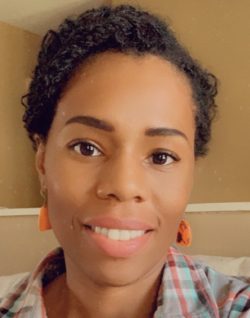

Learners with dyscalculia generally have poor number sense and find it difficult to relate digits to amounts and to memorise maths facts and procedures.
Learners with dyscalculia generally have poor number sense and find it difficult to relate digits to amounts and to memorise maths facts and procedures.
Dyscalculia is a specific but not yet extensively researched difficulty in understanding numbers. Having faced difficulties with maths for most of their lives, dyscalculic adult learners might have lost motivation in the subject, making it hard to find the right support.
Davina Calloway is known for showing up at places early. Her husband might ask why she is leaving for a meeting two hours early, when the journey will only take 40 minutes.
“It’s very hard for me to grasp how long it will take me to get somewhere,” she says.
Another challenge is driving as Calloway, who lives in Virginia in the United States, suffers from poor depth of perception. It can also very difficult for her to distinguish her left from her right.
These are all symptoms linked to dyscalculia, a specific and persistent difficulty in understanding numbers, which can lead to a diverse range of difficulties with mathematics.

Davina Calloway was not diagnosed with dyscalculia until she was an adult. Photo credit: Davina Calloway
Learners with dyscalculia generally have poor number sense and find it difficult to relate digits to amounts and to memorise maths facts and procedures, explains Sarah Jarvis, an educator specialising in supporting young people and adults with maths learning difficulties.
“They may struggle to compare numbers, have a limited understanding of maths concepts and have no idea whether an answer is correct or not,” Jarvis says.
According to Jarvis, dyscalculia is thought to affect around 5 percent of the population. Research into this learning difficulty is, however, still in its infancy so when Davina, now 36 years old, went to school, no one around her had even heard of the term dyscalculia.
Throughout her basic education years, numbers remained an utterly foreign language.
It was only a couple of years ago that Davina Calloway went to see an educational psychologist and got a diagnosis of dyscalculia. This gave her enough confidence to continue her studies and pursue a bachelor’s degree in health services.
“It felt really good to finally have a name for what I have been dealing with my whole life,” says Calloway now.
When everyday shopping is a struggle
Dyscalculia can make life challenging in many ways. Adults with dyscalculia often experience maths anxiety and might avoid doing number work at any cost, Sarah Jarvis explains.
“Having faced difficulties with maths most of their lives they have also probably lost motivation in the subject, making it difficult to get further help and support.”
I remember being yelled at in a job for not getting things right.
People might not achieve the maths qualifications needed to enter many professions, or manage the maths elements essential in many jobs, such as calculating the correct medication or taking measurements on a building site.
Outside working life, tasks such as dealing with money and bills, time management, remembering PIN numbers, reading timetables, or interpreting directions can present a real struggle.
“People might say something like ‘oh well, so you are not very good with numbers’. But even everyday shopping can be exhausting, as it can take a very long time for me to figure out how much a discount for a certain item is,” says Calloway.
No more shame
By now, Davina Calloway has learned to navigate many tricky situations and always carries a calculator with her. The most difficult aspect of dyscalculia, she says, is the shame that she so strongly learned to associate with it.
“Going to school was a nightmare. I tried so hard to hide the fact that I had no clue what was going on and ended up copying a lot of answers from my friends. I only managed to graduate high school because teachers would let me pass to the next grade even when I failed my maths tests.”
She was often told she was simply stupid. The anxiety she felt in social situations made managing numerical tasks even more difficult.
“I remember being yelled at in a job for not getting things right. I remember having trouble counting the correct change for a customer and hearing my colleague make fun of me under her breath. I was just so embarrassed.”
Now, as an adult learner diagnosed with a learning difficulty, Calloway is entitled to certain accommodations as part of her degree. She can take slightly more time on tests than others, and has been given a study guide to support her studies.
Despite these support mechanisms, Calloway admits that she still struggles with her studies at times. Getting a good maths tutor, for example, is not easy. She would need someone specialised in dyscalculia, and there are not many professionals who do that in Virginia.
“I still cannot do mental arithmetic – I need to visualise things, and this applies to many people with dyscalculia. You really need to have the expertise and understanding of what kind of methods work when teaching us.”
Although Calloway chose her degree partly on the basis that it did not contain a lot of mathematics or calculations, she will need to complete one maths class in order to graduate.
“I am nervous, but I know what tools I have now. One thing I know I am going to do differently is that I am going to tell my professor about my learning difficulty straight away. I will not live in the shadows anymore.”
Five tips for supporting adults with maths learning difficulties
Sarah Jarvis has been working at Bracknell & Wokingham Further Education College in the UK, now part of the Activate Learning Group, for 12 years as a qualified maths lecturer.
She has an Advanced Diploma in Overcoming Barriers to Learning Maths and is currently providing specialist maths support to learners aged over 16 who find maths particularly challenging.

Sarah Jarvis has a long experience in supporting young people and adults with maths learning difficulties. Photo credit: Sarah Jarvis
Sarah Jarvis shares her expertise in helping dyscalculic adults.
- 1. Every learner will need a different approach according to their strengths, difficulties and life experience. Building and ensuring understanding of maths concepts is key, as is finding methods that work for them. Asking questions will help identify understanding and methods used, such as: “How did you do that? Why do you think that? How do you know that’s true/correct?”
- 2. Adults will have more life experience than younger learners and using contexts and experiences that are relevant to the learner will help them to learn, understand and apply maths concepts successfully.
- 3. The use of images and objects, far from being childish, is exactly what dyscalculic learners need to help improve their number sense and understanding of number concepts. Objects such as dominoes showing dot formation, number lines and Base 10 Blocks will help with the visualisation of number quantities, and drawing pictures to represent a problem is a powerful tool to help a visual learner.
- 4. Maths is a language in its own right andin its own right and it is important to teach the language of maths explicitly rather than assuming an understanding. For example, ‘more than’ can mean addition or subtraction depending on the context. What is 4 more than 5? If I have €4 and you have €5, how much more than me have you got?
- 5. It is important to teach adults with maths learning difficulties how to use a calculator to solve arithmetical problems and also to teach them estimating techniques to know whether the calculated answer is correct. Recognising whether to add, subtract, multiply or divide in a wordy problem is a key skill to learn for everyone.
Author







